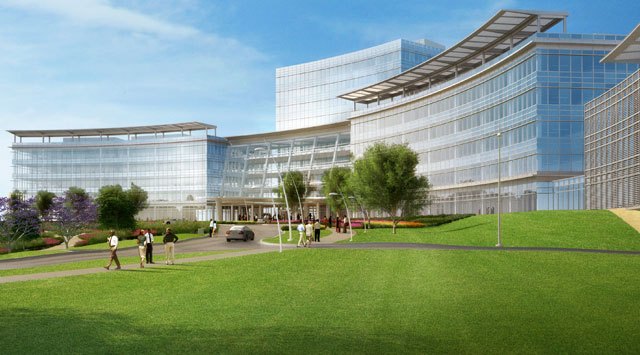The more far-flung the jobs in a region, the fewer are accessible via transit, biking, and walking -- or even a short, inexpensive car commute. And yet, in many states, economic development policies still contribute to long, burdensome commutes, especially for people who can't afford cars.
The sprawling, racially segregated Cleveland region is a bit of a poster child for job sprawl. The typical commute distance continues to increase, according to a 2015 Brookings study, and public agencies are subsidizing this dispersal of jobs in several ways.
Marc Lefkowitz at the Cleveland-based environment blog Green City Blue Lake has been examining how economic development spending undermines transit access to major job centers in Northeast Ohio. He used WalkScore to show how the Cuyahoga County Port Authority is contributing to this problem in the Cleveland area. The Port Authority subsidizes loans to selected businesses, and these loans often pay for relocations, office parks, or parking structures, Lefkowitz reports:
While the port has supported many projects that reinvest in the urban core and create walkable, transit-friendly places that improve job access, about half of recent projects have the effect of reducing access to economic opportunity.
It's vital for all economic development programs to take these issues into account. Too often, such programs are "spatially agnostic." They don't care where the new jobs appear, as long as they are in a particular political jurisdiction. But the particular location matters a lot. Public investment should not promote job sprawl that moves opportunities away from the people who need opportunity the most.
A secondary trend that emerges from the analysis of the port’s investment is the direct investment in parking. Structured and surface parking was added in nearly all cases. In seven deals, the creation of structured parking was either a significant or sole purpose. Of particular concern is the supply of parking attached to developments in transit-rich areas of the region.
It's a shame these economic development agencies are so unconcerned by their own contributions to the problem of poor job access.
More recommended reading today: Urban Indy considers the case of the Chatham Arch neighborhood, just a mile from downtown Indianapolis, where residents apparently think townhomes represent too much density. And Bike Portland looks at how the city's new bike-share system, Biketown, fared during the recent "snowmaggedon."






